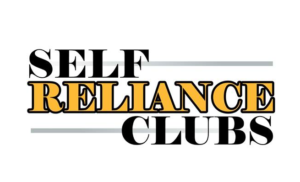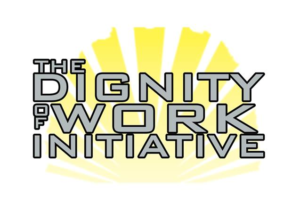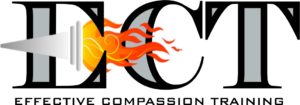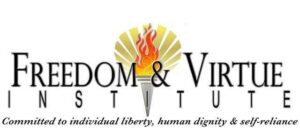A Deeper Look Into Poverty
by Ismael Hernandez
One day, while sitting at my AFCAAM Center ministry desk, I noticed some young people coming to receive food from our pantry. It dawned on me that we had been giving food to their parents for many years, and now, here they were as adults for food for themselves. Was I—had I been—truly helping, or had I unwittingly become a cog in a machine that perpetuated the bondage of dependency without altering the substance of their existence?
The experience has stayed with me over the years as a reminder that good intentions are not enough. When it comes to service for the poor, we often respond first emotionally, from the heart, and then move into action, via the muscle, without challenging our assumptions. My assumption was that I was doing the best I could to help the poor. Yet, this underlying belief was fraught with the perils of protagonism. After all, we—those trying to meet the needs of the poor–often conform ourselves to models of service in which we become heroes while the poor recede into the background scenery. At times, we might inadvertently contribute to systems that view the poor as passive recipients of our magnanimity instead of creating new paradigms in which we recede to the periphery of action and become witnesses of the effort of beautiful people building their own lives. If only our trust in the poor to determine their own lives matched our pity for them, what a life-changing difference we could make in the lives of the poor!
That is why I believe that the most important question is not that of what causes poverty but rather the question of what causes human flourishing? What is it that moves people to engagement, risk, struggle, and effort? What motivates them to see the obstacles they face only as the context against which their dignity emerges triumphant?
The Freedom & Virtue Institute, which I founded seven years ago, is built upon the bedrock of human flourishing and is dedicated to the promotion of human dignity, individual liberty, and economic initiative. That dignity emerges organically when opportunity meets dedication and when the human person is placed at the center of our focus and efforts. “How may I help you?” is not the greeting we should offer the poor. “We believe in you, we need you!” is the best encouragement we can offer them to be the protagonists of their own lives.
 We accomplish these overarching goals through a series of initiatives, one being The Self-Reliance Club. Active in public schools, the club embraces activities already underway and brings forth their entrepreneurial value. Students work in gardens, the arts, and other endeavors and earn money for their work. We teach them basic economics and at the end of the school year, we take a field trip to Achieve Credit Union or BB&T Bank where we present them their earnings, in the form of a grant, and they each open his/her own bank account. They can use the savings to buy their school supplies and backpacks, instead of getting them handed to them. There is something extraordinarily powerful in earned success and accomplishment that simply is not present in learned helplessness. Students see the value of work and are able to connect their achievement to reward. This year we are excited to be conducting our first Young Entrepreneurs Fair.
We accomplish these overarching goals through a series of initiatives, one being The Self-Reliance Club. Active in public schools, the club embraces activities already underway and brings forth their entrepreneurial value. Students work in gardens, the arts, and other endeavors and earn money for their work. We teach them basic economics and at the end of the school year, we take a field trip to Achieve Credit Union or BB&T Bank where we present them their earnings, in the form of a grant, and they each open his/her own bank account. They can use the savings to buy their school supplies and backpacks, instead of getting them handed to them. There is something extraordinarily powerful in earned success and accomplishment that simply is not present in learned helplessness. Students see the value of work and are able to connect their achievement to reward. This year we are excited to be conducting our first Young Entrepreneurs Fair.
The Dignity of Work Initiative is another of our projects. This church-based initiative assists the long-term unemployed through training, and mentoring. God designed us for work, as an expression of our devotion to our “neighbors” and to Him. But what if—for any reason—a person is out of work? A loss of a job often equates to a loss of a sense of purpose and entrenches vicious cycles of dependency and poverty—I am convinced that the poor do not want this. Christians are engaged in helping the poor, but their efforts are often centered on providing food, clothing, and shelter. Worthy endeavors, all. Sixty-two percent of churches operate these kinds of programs, while only two to four percent provide services that lead to employment for those out of work. We want people to receive all the help they can; our initiative simply shifts the paradigm by prioritizing the inherent dignity of the poor and their God-given need to work.
providing food, clothing, and shelter. Worthy endeavors, all. Sixty-two percent of churches operate these kinds of programs, while only two to four percent provide services that lead to employment for those out of work. We want people to receive all the help they can; our initiative simply shifts the paradigm by prioritizing the inherent dignity of the poor and their God-given need to work.
Lastly, our Effective Compassion Training helps non-profits and churches here in Southwest Florida and across the country discover and implement the “seven principles of effective compassion.” By being grounded in sound principles that offer a sound basis to promote  flourishing, we begin in the mind—with an intelligent and dispassionate assessment of the deeper human needs—then the heart and lastly the muscle. We explore the principles used in the past by people of goodwill when there were no government-run programs. These principles, adapted to present conditions, are still profoundly and vitally important.
flourishing, we begin in the mind—with an intelligent and dispassionate assessment of the deeper human needs—then the heart and lastly the muscle. We explore the principles used in the past by people of goodwill when there were no government-run programs. These principles, adapted to present conditions, are still profoundly and vitally important.
The Freedom & Virtue Institute is committed to a new way forward—based on perennial truths—as we look to the problems of poverty. Please contact me if you want to know more about any of FVI’s initiatives.



